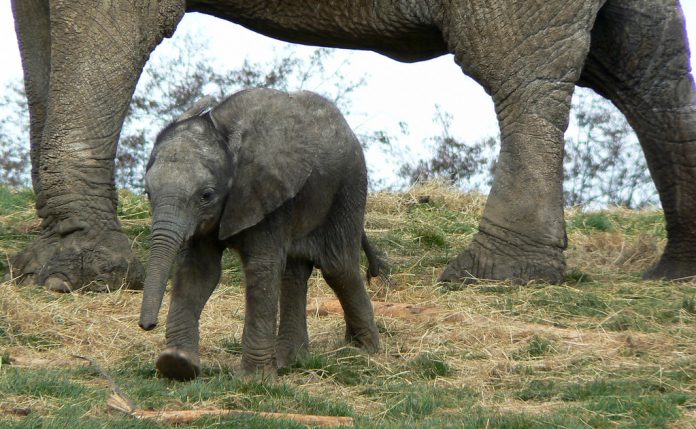This week, countries attending CITES voted to end the highly controversial trade in wild-caught African elephants from Zimbabwe and Botswana to captive facilities such as zoos in China and elsewhere. These captures have drawn the condemnation of animal protection and conservation organisations as well as elephant scientists who decry the practice as cruel and exploitative. However, there is concern that the vote could be reopened at next week’s plenary, and that the EU bloc of 28 is expected to oppose the ban. Humane Society International is actively petitioning the governments of the European Union, as well as the United States which voted against the decision, to uphold the decision next week.
African elephants in Zimbabwe and Botswana are listed on Appendix II of CITES with an annotation that allows live elephants to be exported to “appropriate and acceptable” destinations. Under these conditions, Zimbabwe has been capturing live baby African elephants in the wild and exporting them to zoos in China and elsewhere.
“Elephants are social and sentient beings, and studies have revealed that wild elephants demonstrate behaviours associated with grief, self-awareness and compassion. The loss of captured individuals causes sustained psychological trauma for both the captured elephant and the remaining family,” said Audrey Delsink, Humane Society International/Africa Wildlife Director and an elephant biologist.
“Captivity for elephants can mean a lifetime of illness as they typically suffer from a long list of diseases and disorders that are not normally seen in their wild counterparts, such as colic, foot and nail diseases, obesity, skin disorders, tuberculosis, and increasing incidences of elephant herpesvirus. For those elephants used in elephant-tourist interaction activities, they can also suffer chain-cut wounds from tethering, pressure sores from carrying loads on their back and musculoskeletal disorders. Captivity for elephants who have a longevity of at least 60 years in the wild is cruel and heartless and cannot be supported,” she added.
“Public opinion is shifting and people throughout the world are appalled by the capture of baby elephants from the wild for export to zoos. If the EU scuppers this progressive CITES protection next week it will be vastly out of step with the compassionate views of its citizens,” concluded Delsink.
This week’s “ban” would in effect limit wild African elephant exports from Zimbabwe and Botswana to only “in situ conservation programmes or secure areas in the wild within the species’ natural range, except in the case of temporary transfers in emergency situations” according to HSI. It was passed by the required 2/3 majority vote in Committee I of CITES largely because the EU bloc was unable to vote due to a technicality (it had not yet filed its credentials). The decision still needs to be affirmed next week during the final plenary session at the end of the 12-day conference, and the European Union – which spoke against the “ban” before the vote, and now has its credentials to vote in order – looks set to vote against.
The plenary takes place on August 27th and 28th. As a 28-country voting bloc, the European Union’s vote is substantial and could reverse the decision if it votes against it.
Humane Society International is urging its supporters to sign a petition urging the European Union and United States not to oppose the decision.

